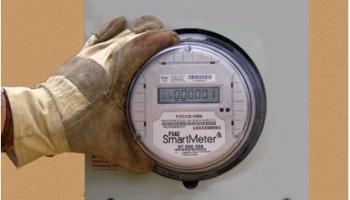DECC Lays Out ‘Tough Guidelines’ On Smart Meters

DECC’s smart meter programme expected to deliver £7.2 billion net benefit over 20 years
The Department of Energy and Climate Change (DECC) has unveiled a set of guidelines that it says will put “consumers’ interests at the heart of the government’s smart meter programme”.
The conclusions focus on properly informing consumers how to use meters to save energy, restricting third-party access to user data and ensuring that installation visits are not used as sales opportunities.
Smart meter drive
 A total of 30 million homes and businesses are expected to be fitted with smart meters by 2019, and over twenty years the programme is expected to produce a £7.2 billion net benefit, based on an accumulated cost of £11.5 billion and benefits of £18.6 billion.
A total of 30 million homes and businesses are expected to be fitted with smart meters by 2019, and over twenty years the programme is expected to produce a £7.2 billion net benefit, based on an accumulated cost of £11.5 billion and benefits of £18.6 billion.
“In less than three years energy suppliers will begin the mass rollout of smart meters across the country and I am determined that consumers are at the heart of this ambitious programme,” said energy and climate change minister Charles Hendry. “That is why today we are proposing tough guidelines on installation, which will minimise inconvenience and help people to make the most of their smart meters to save energy and save money.”
Among the stipulations laid out by the DECC, suppliers will not be allowed to pitch products to consumers during an installation visit without permission, and installers will be required to provide energy efficiency advice.
“In addition, I want to be absolutely clear to consumers that they will be in control of their energy consumption data. So apart from where it is required for billing or other regulated purposes, it will be for consumers to decide who can access their data,” Hendry said.
The DECC’s programme suggests that suppliers will be able access monthly data for billing purposes, but that any other level of access can be restricted by the consumer. Daily data access can be opted out of, while any data collected half-hourly or for marketing purposes must be explicitly agreed to by the consumer. Additionally, any collected information will be forced to comply with the Data Protection Act.
“We welcome the banning of sales during installation and that marketing will only be allowed if the customer agrees. This shows the Government has listened to consumers,” said Mike O’Connor, chief executive of Consumer Focus. “We support the proposals to address consumer concerns around the privacy of information. But, to make this work, people must be aware of their rights and the choices available to them on how much information is passed to suppliers.”
The latest version of the Government’s smart meter guidelines has already cauased some difficulties. It has been reported that British Gas will have to replace up to 200,000 domestic smart meters that have already been installed, as they do not meet the new guidelines.
Are you a patent expert? Try our quiz